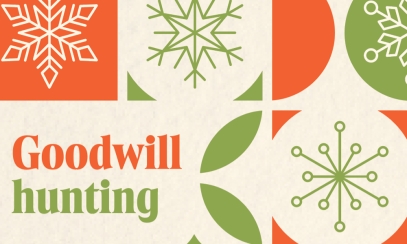Ethnic parishes help keep faith alive for those in a new world
As the grandson of immigrants from eastern Europe, and as the son of first-generation American parents, I know something about ethnic parishes. And as a churchman who helped organize and develop ethnic parishes for Hispanics and Asiatics in Michigan, I say that they were and are still necessary. The flowering of the Catholic Church in the United States into a real koinonia (Greek) or communio (Latin), translated as “communion” (or fellowship, or partnership, or mutual sharing) has been made possble by the success of the ethnic parish.
St. Andrew Dung-Lac parish for the Vietnamese on Lansing’s south side is the most recent example of this. Beginning in 1980, with the influx of Vietnamese refugees into the Lansing area, the diocese obtained the services of Father Joseph Tran, himself a refugee, to minister to them at the cathedral. I began attending religious and cultural events in this community. For 14 years, for example, I celebrated Mass for them early on Christmas Eve with Father Tran interpreting the homily. Afterwards I had a Vietnamese dinner with the community and enjoyed an after-dinner program, interpreted to me by grade schoolers who were bilingual.
My memories of the early 1980s were that the elders of the community, the grandparents, always looked sad. They missed their homeland, didn’t understand or speak English, and seemed lost. They were reverent, polite, and appreciative of American freedom; but their hearts were in the past. Their sons and daughters had the same struggles; but, working very hard, they fared much better. The grandchildren thrived in America almost at once, were whizzes in school, and learned English with ease.
One of the two most vivid memories I have of the Vietnamese is of children guiding their grandmothers in the aisles of a supermarket, serving as interpreters for them with other adults, and helping them through the check-out line. The other vivid memory is the Christmas party of 1994, when a proud father told me that one of his daughters was engaged “to an American boy” and would marry him in the spring.
Among the Vietnamese today, it is the grandchildren of the first refugees who are the first to be really at home in American society, civic and religious. It was the same in my family years ago. Of the 11 children born to my immigrant grandparents, only the two youngest daughters married outside the ethnic circle. But of the 24 cousins whom my parents, aunts, and uncles begot, 19 married non-Poles, only one of whom was non-Catholic.
The ethnic parishes kept the faith alive for European immigrants and their children. The grandchildren of these immigrants were the ones who intermarried, made the European ethnic parishes extinct, and brought about the majority of parishes today which are more reflective of the Church that is catholic; that is to say, universal and for all.



